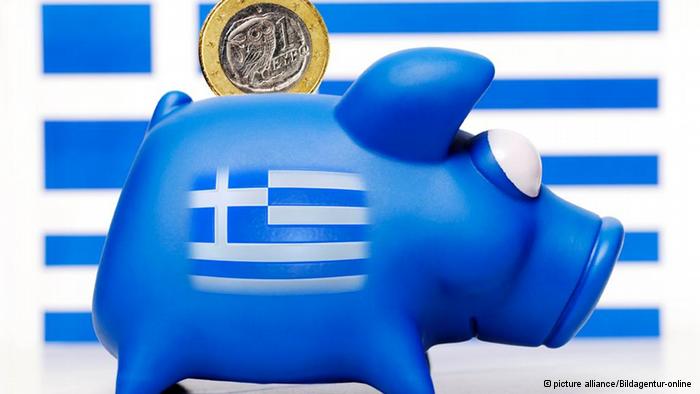Rebecca Christie & Corina Ruhe, Bloomberg
Euro-area finance ministers challenged Greece to lay out ideas for a deal with its official creditors, saying they’ll listen without anticipating an immediate accord.
After Germany and Greece took clashing positions in the run-up, ministers met in Brussels on Wednesday to kick off negotiations that will continue next week. Dutch Finance Minister Jeroen Dijsselbloem, who heads the meetings, said the ministers want to hear Greece’s proposals and look for ways to move forward.
“I don’t expect an outcome today,” Dijsselbloem told reporters in Brussels. Extra money “is not on the table right now” and Greece needs to stick to its reform path, he said.
Greece’s bailout package will expire this month if the euro area’s most-indebted nation can’t reach a deal with its creditors, risking a cash crunch. Greek Finance Minister Yanis Varoufakis, who met International Monetary Fund Managing Director Christine Lagarde before meeting his 18 euro-area colleagues for the first time, told reporters he’s “confident we’re going to have a very constructive meeting today.”
Asked by a reporter whether Greece’s exit from the euro area is on the table, Varoufakis said: “Of course not.”
In Athens, thousands rallied in front of the Greek parliament in support of the government’s anti-austerity stance. Prime Minister Alexis Tsipras posted a photo of the rally on his Twitter account, saying popular protests “across Greece and Europe” are “the source of our strength.”
Greek Proposals
Varoufakis and Deputy Prime Minister Yannis Dragasakis discussed with Lagarde and Dijsselbloem what a bridge financing plan for Greece could include, a Greek government official said.
Greece is seeking a 10 billion-euro ($11.3 billion) deal for bridge financing to allow time for talks about its future aid. Varoufakis was expected to ask for an 8 billion-euro increase in the amount of Treasury bills that Greece is allowed to issue, along with the disbursement of 1.9 billion euros of profits that euro-area central banks made on their Greek bond holdings, according to a Greek government official.
Greece needs to understand that commitments need to be respected, EU Economic Commissioner Pierre Moscovici said before the meeting. Talks need to proceed with “goodwill,” he said, adding it was too soon to discuss technical details.
“Greece’s place is in the euro zone,” Moscovici said.
While German Chancellor Angela Merkel says her goal is to keep Greece in the euro, her finance minister, Wolfgang Schaeuble, insisted that the country’s bailout program expiring this month must be “brought to an orderly conclusion.”
Ending ‘Provocations’
Tsipras’s government will have to negotiate with the IMF, the European Commission and the European Central Bank even if it doesn’t accept the group’s description as the “troika,” Schaeuble said in Brussels.
“This is not about defining red lines, but we have a program,” he said. “And we have extended this program because Greece still has to fulfill some of it. If Greece wants that, one can of course negotiate with the three institutions which we should no longer call the troika, but which is the troika.”
Austrian Finance Minister Hans Joerg Schelling said Greece’s new government should call “an end to provocations” and shift from campaign rhetoric to substantive work.
“We’ll hear the proposals of the Greek government and then see what we can do,” Schaeuble said. “I don’t expect any results today but maybe we’ll set up a procedure.”
The yield on three-year Greek notes jumped 105 basis points to 20.03 percent on Wednesday, while Greece’s ASE stock index lost 4 percent. Tsipras, whose Syriza alliance won elections in January on a platform of ending German-led austerity, is seeking an overhaul of aid conditions that recognizes economic damage caused by the crisis.









